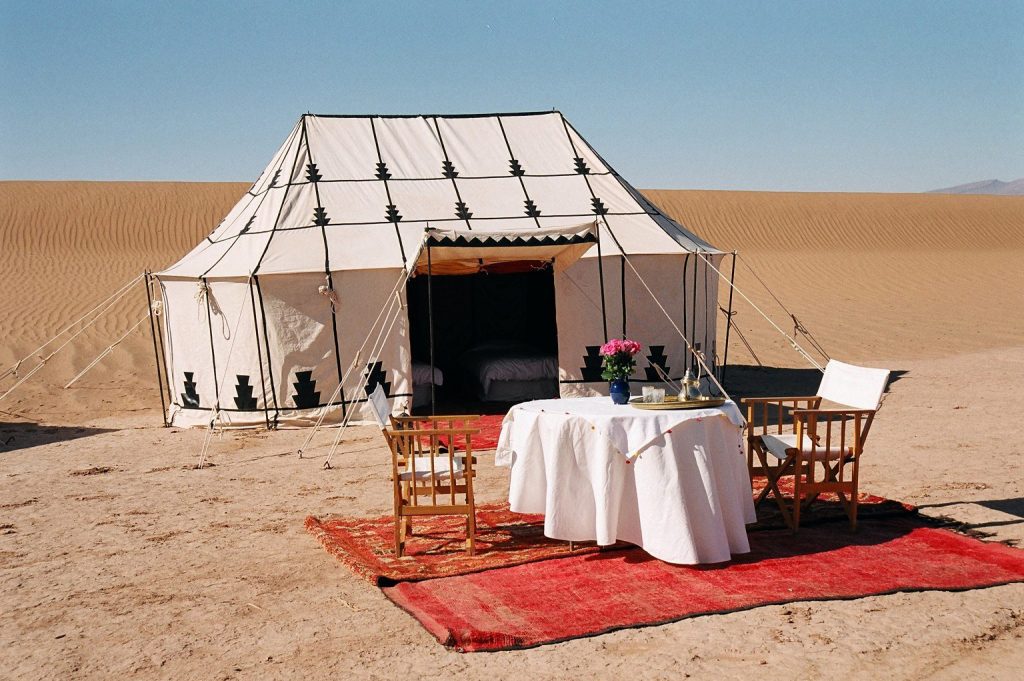Skift Take
Luxury is in the midst of a metamorphosis. While luxury once meant the most expensive or most well-known product or experience, today it's become a way of being or moving throughout the world.
Luxury is a means of travel rather than a destination. Previously evident only by the physical representation of wealth, it is now sought after for its mental and spiritual expression.
Today we pursue it by willing ourselves to last five more minutes in that morning meditation, fly to Switzerland for the latest and greatest in anti-aging treatments, or receive daily alerts about which neuropsychologist is speaking at upscale lifestyle retailer ABC Carpet’s “Deepak HomeBase.”
The concept of luxury is changing exponentially today because our societal and cultural norms and expectations are changing more quickly than in the past.
This accelerating rate of transformation is similar to what futurist Ray Kurzweil calls human history’s Law of Accelerating Returns, which in summary says advances are getting bigger and bigger and happening quicker and quicker. As technology experiences exponential growth, so does its impact on our societal norms and cultural beliefs – including the very notions of luxury.
For those trying to make sense of this sea change in consumer sentiment related to all things luxurious, it’s helpful to understand the forces that are helping to shape it. Consumers’ values and preferences are in flux, thanks the competing forces of globalization, key changes in consumer mindset, and the disruptive impact of technology.
Rapidly globalized economies are creating a new breed of consumers with a much broader, multidimensional perspective on what quality and luxury can be. Despite this cross-pollination of culture, the economic and cultural maturation of a market still impact consumers’ expectations and experiences with the luxury sector.
What Has Changed?
In the recent Skift Trends Report: The Luxury Evolution, Skift and Marriott International interviewed more than 12,000 affluent consumers across the United States, United Kingdom, China, Mexico and the United Arab Emirates for a present-day pulse on cultural attitudes and inclinations. Their tastes and preferences shifted based on their cultural perception of luxury.
For example, two-thirds or more of luxury consumers in the U.S., UAE and UK agreed with the statement that “luxury goods and services are about differentiating myself from others” in Skift’s survey. More than 90 percent of those in China and 75 percent of those in Mexico said the same.
The incredible growth in disposable income in markets around the globe also means material wealth is no longer the only signifier of superiority.
Increasingly, as individuals’ basic needs for safety and community met, consumers are seeking out a sense of accomplishment in other areas.
This is driving a major shift in the consumer psyche of affluent consumers who are now looking to self-actualization – the fifth and top level of Maslow’s Hierarchy of Needs – as the ultimate luxury.
No longer is luxury travel just about coveted brands or chic destinations. Those things still matter, but there’s a now new layer to the luxury experience, one in which the attainment of the most creative, adventurous or peaceful idealized version of ourselves is the ultimate goal.
The shift is from an external to internalization of luxury and the journey the consumer sets out on to achieve his or her ideal state.
“Our guests are seeking out experiences that help them express who they are, so their approach to luxury continues to be less formal, entirely more personal, and defined more by their interests and mindset than their geography and demographic,” Tina Edmundson, global brand officer at Marriott International, said in the report.
As consumers set upon their journey of self-actualization, they are redefining technology’s role from a means (book the car, reserve the table) to an end in of itself. We rely on technology from moment to moment and luxury brands recognize the potential in being present.
This disruptive shift in how we relate to technology suggests that brands’ interaction with consumers before, after and during a trip or purchase is actually part of the brand experience.
As Skift hospitality editor Deanna Ting found at this December’s ILTM in Cannes, many hospitality leaders are questioning how and where technology fits into the luxury experience today. Many agree that technology for technology’s sake is worthless.
The Daily Newsletter
Our daily coverage of the global travel industry. Written by editors and analysts from across Skift’s brands.
Have a confidential tip for Skift? Get in touch
Tags: luxury
Photo credit: An Abercrombie and Kent exclusive desert camp. Luxury consumers want to set themselves apart from others. Abercrombie and Kent
